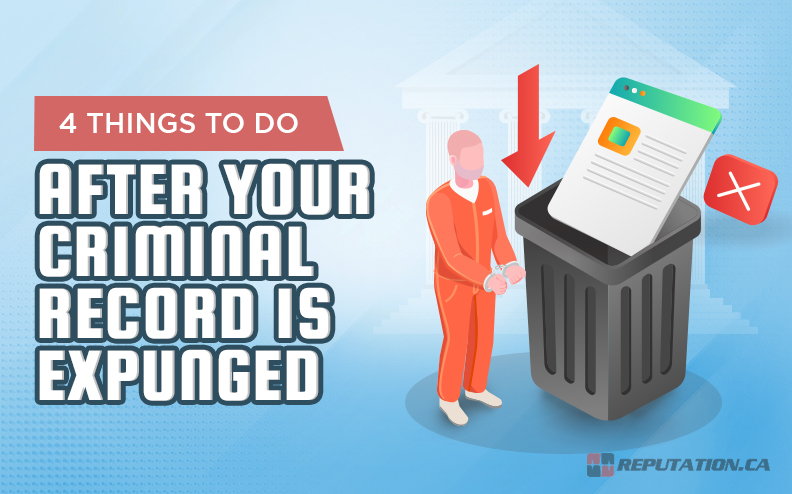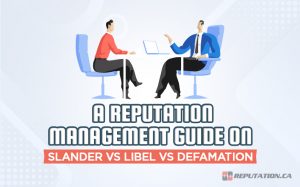We all make mistakes, though the severity of those can vary radically for some people. For most people, a mistake involves forgetting to submit an important document on time or overcooking dinner. Other people struggle to remain within the bounds of their country’s legal system and commit crimes to stay afloat.
While certain crimes are unforgivable, others are mild enough that the perpetrator does not have to spend the rest of their life paying for it. That said, most citizens are not keen on having a convicted criminal work with them or living in their neighborhood. As a result, many countries maintain publicly accessible criminal records so law-abiding citizens and potential employers can identify criminal elements.
Some crimes are so heinous that they have their own directory and require the people on it to inform their neighbors of their criminal status when moving in. Others do not have dedicated directories or require the individual to inform anyone of their criminal history (though the records can be acquired via an online or in-person inquiry).
Sometimes, a person’s criminal history was a genuine mistake they have no intention of repeating, and they can get the record expunged. Having a criminal record expunged is a new start for the person in question, but relying on an expunged criminal record to restore your reputation is a mistake. You must take other steps to ensure your expunged record does not come back to haunt you.
What Does an “Expunged Record” Mean?
If you have never been through the process of having a criminal record expunged, you might not fully grasp what it entails. Expunging a criminal record is most common for juvenile crimes considered less severe. Typically, citizens under 18 are not tried as adults for most crimes because they are considered too young to make rational decisions. Any juvenile convicted of a crime is sentenced to time in juvenile detention rather than a normal prison.
Additionally, these records are automatically expunged when that individual turns 18 to prevent their underaged activities from impacting their ability to integrate into adult society. As a result, most properly rehabilitated juveniles never have to worry about their juvenile record being made public. The problem is that adults are not offered automatic expungement and must file a request to remove their criminal record.
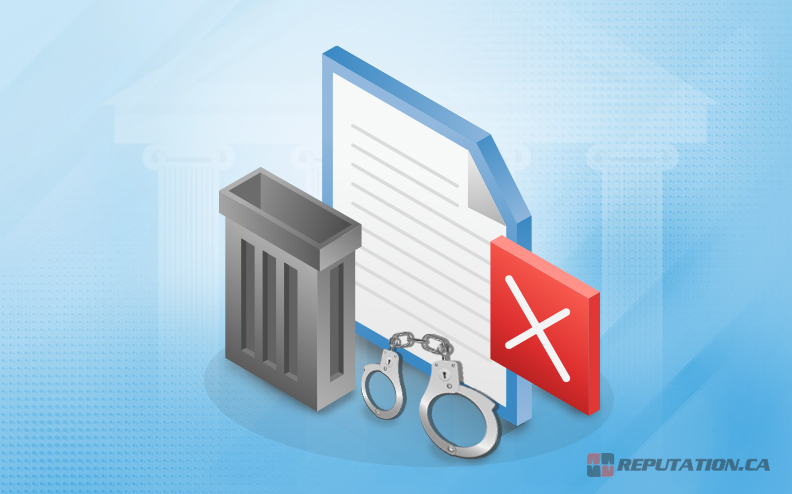
Expungement is the complete erasure of a criminal record that prevents employers and private citizens from learning about an individual’s criminal history. Citizens 18 or older are extremely limited insofar as expungement rights are concerned, with most states maintaining a list of crimes that are ineligible for expungement. For example, most states will never expunge records of homicide or sexual assault, but misdemeanors are more likely to be expunged upon request.
However, the person requesting their record be expunged must meet certain criteria for the process to be approved. Having a criminal record expunged opens opportunities to rebuild your reputation and life after the initial damage caused by the arrest. Unfortunately, getting your criminal record expunged will not be enough to undo the damage and give you a fresh start. You will have to take additional steps to reboot your reputation so there is no risk of your expunged record being used against you.
Step #1: Get a Copy of the Court Document
Expunging a criminal record is essential to preventing previous criminal activity from affecting you in the future. While having the record expunged does allow you to act as though the crime never occurred, the right is theoretical unless you can corroborate the change. As a result, one of the first things you must do to get your criminal record expunged is get certified copies of your court file.
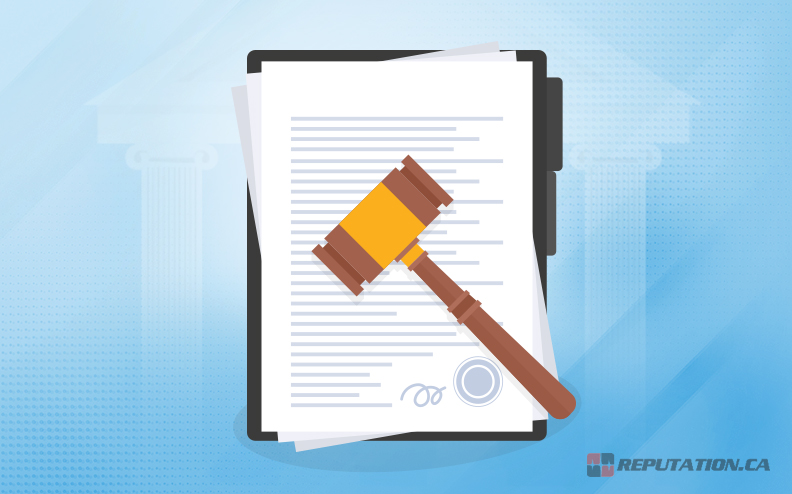
Access to the court file means you can address any issues that might arise with the expungement after the fact. Furthermore, it provides an official document that gives you access to any pertinent information the court might need to authorize or deny the expungement. By having your own copy, you can address concerns the court might have that could jeopardize your ability to expunge the official record. Furthermore, you can have the copy examined by an attorney to identify any potential mishandling of the case.
Acquiring hard copies is ideal since most courts favor hard copies over digital ones, and certified copies are irrefutable. You will likely have to visit your local courthouse to acquire a certified copy or send in a request via certified mail carriers. Once you have your case files, you can begin the expungement process. While this step takes place before the expungement, it is critical since your efforts will be hindered without this document.
Step #2: Get a Copy of the Granted Petition
When you petition to have your criminal record expunged, you submit a document that must be reviewed and authorized by a court official. Regardless of whether the judge grants or denies your request, an official document is submitted to the court records for future reference. These documents become a part of the official record to determine whether your previous criminal activity should remain public or is no longer considered valid in the eyes of the law.
If your petition to expunge your criminal record is granted, your criminal history is wiped from the official record. Unfortunately, certain legal rights might be withheld unless you can prove your criminal record was expunged to entities with pre-existing knowledge of your criminal record (which might be more widespread depending on how bad your crime was).

Therefore, once your criminal record is expunged, you must immediately acquire a digital copy of the document that authorized the expungement. This gives you irrefutable proof that your criminal record has been sealed, and you can no longer be treated as a criminal. While this might not fix your reputation for interpersonal relationships, it prevents potential employers from excluding you due to a previous transgression.
Digital copies of this document are acceptable since you are not submitting them to the court and do not need a hard copy to prove their validity. Nevertheless, the document could be essential to prevent discrimination based on criminal conduct that is no longer legitimate within your state’s court system.
Step #3: Get a Certified Letter
In addition to getting a copy of the granted petition, you can request a certified letter from the Clerk of the Court that no criminal record exists under your name. This is one of the most important steps since confirming your criminal record no longer exists ensures you are not lying when you deny being a convicted criminal. Once you have completed the expungement process, you can visit the courthouse where your case was handled and request a criminal records check with the clerk.
This results in the clerk performing an official search within the court’s records for any documentation corroborating a criminal history. This search will confirm whether your criminal record has been deleted or the process is still pending. The search will not be free, and every courthouse will require you to pay a small fee for the search and the letter. Fortunately, this expense should not exceed an average of $10.00 in most courts, but it is something you must consider.
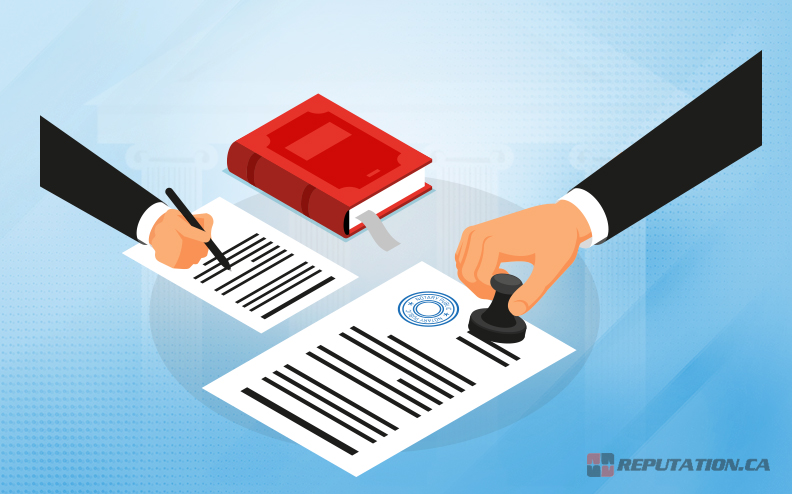
When you request the check, you must provide personal information they can use to distinguish you. While your name is key to performing the search, the odds are high that you will live in an area where someone has a similar or identical name (a consequence of the human population numbering in the billions). You will likely have to provide information like:
- Your date of birth.
- Your driver’s license/state identification number.
- Your social security number.
The exact information the clerk requests will vary slightly depending on your county, but all the information is gathered to find the appropriate file. Once the search is complete, you will know whether your county’s court system has any record of your criminal past. The letter you requested will be sent to your e-mail or printed out for you to keep so you can use it as definitive proof that you are not a criminal per your state’s government. The certified letter also reinforces your right to actively deny having a criminal history and claim that you have never been convicted. Even if someone in the future knows you were previously convicted, they cannot use that information against you.
Step #4: Control the Narrative
Even if you get your criminal record expunged, it is still possible that those around at the time will circulate the information. Without an official record, proving that you were ever guilty of a crime becomes impossible, and the accusations turn into idle gossip. Unfortunately, many people have adopted a “guilty until proven innocent” disposition and require you to prove the allegations are false, even if no official record can be found.
One of the best ways to do this is to take advantage of your charitable side and engage in community service or charity. This helps portray you more sympathetically while driving focus away from the alleged crimes you committed. We mentioned before that some crimes are more severe than others and get more publicity, allowing them to become common knowledge despite the criminal record being expunged. While expunging your criminal record is still a viable option, it increases the amount of work you must do to recover your reputation.

Engaging in philanthropic acts can be an excellent way to demonstrate genuine change and a desire to give back to a community you previously harmed. It is important to remember that a sudden interest in charitable acts will not yield immediate results, and the public will remain skeptical if your crime is well publicized. However, consistency and a genuine reform to not engage in criminal activity will yield significant improvements.
Unfortunately, no matter how devoted you are to rehabilitation, not every crime can be forgiven. Murderers and sex offenders never recover their reputations and remain blocklisted amongst their peers. Furthermore, these crimes cannot be expunged and will remain regardless of your efforts. Fortunately, most other crimes can be expunged from the official record, so you can start from scratch, though you might need to follow a few extra steps if your arrest was publicized.
Extra Step: Get Your Side Out There
If your crime was publicized to the point that everyone knows about it, but the crime gets expunged due to some issue with your guilt, you will still carry the stigma even if you are innocent. The best way to overcome this is to combine the previous steps and make an official announcement telling your side of the story. While you will not convince everyone, telling your side of the story will work better since your record being expunged will corroborate your side of the events.

This can help jumpstart your recovery from a damaged reputation since you will clear up people’s misconceptions due to your conviction. This step can generally be skipped if your crime is not publicized in the news or articles. Unfortunately, if you were a major figure before the crime occurred, your conviction was likely heavily discussed since news outlets focus on people with a large media presence.
Take Your Reputation Back!
Getting a criminal record expunged is no easy task, and it can be almost impossible to accomplish unless you can prove you are fully rehabilitated. While an attorney can help process your expungement request, you will be left to pick up the pieces of your damaged reputation. The tips in this article are an excellent start, but sometimes people need extra help to repair their reputations after a major development like a conviction.

We at Reputation know that the difficulty of building up your public image is rivaled only by its fragility in the face of controversy. That is why we have dedicated ourselves to providing reputation management services to help you revitalize yours. Managing a reputation is hard work, and it only gets harder if you are convicted of a crime. We encourage you to visit our website and see how we can help reinvigorate your public image so you can take your reputation back!




